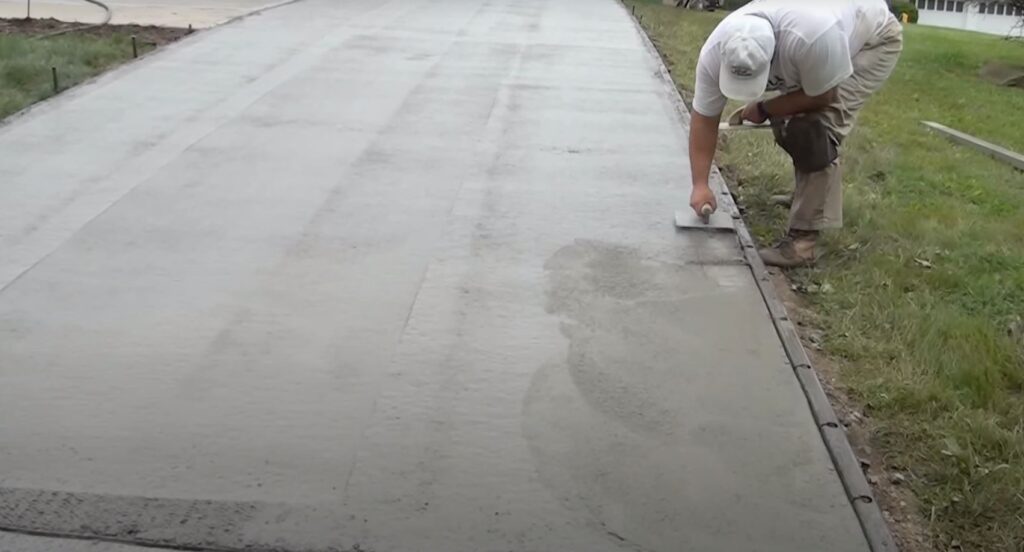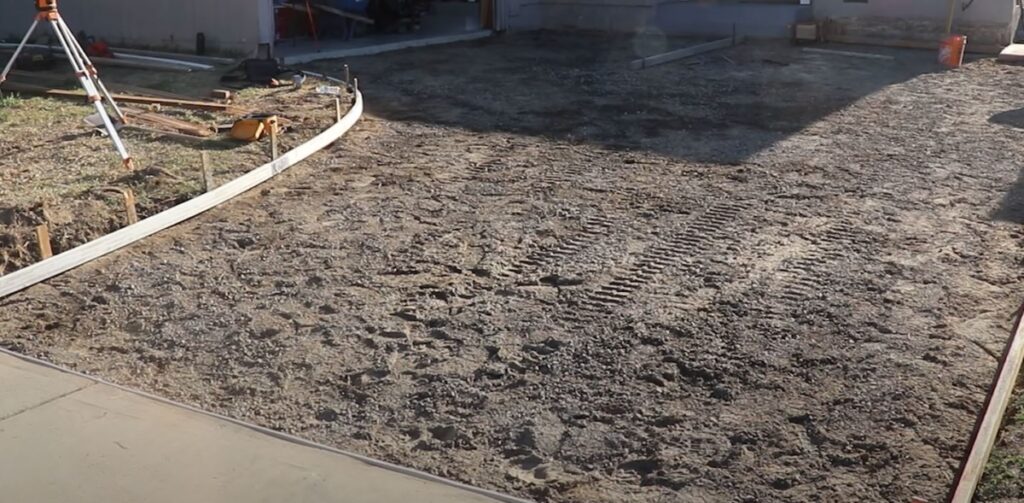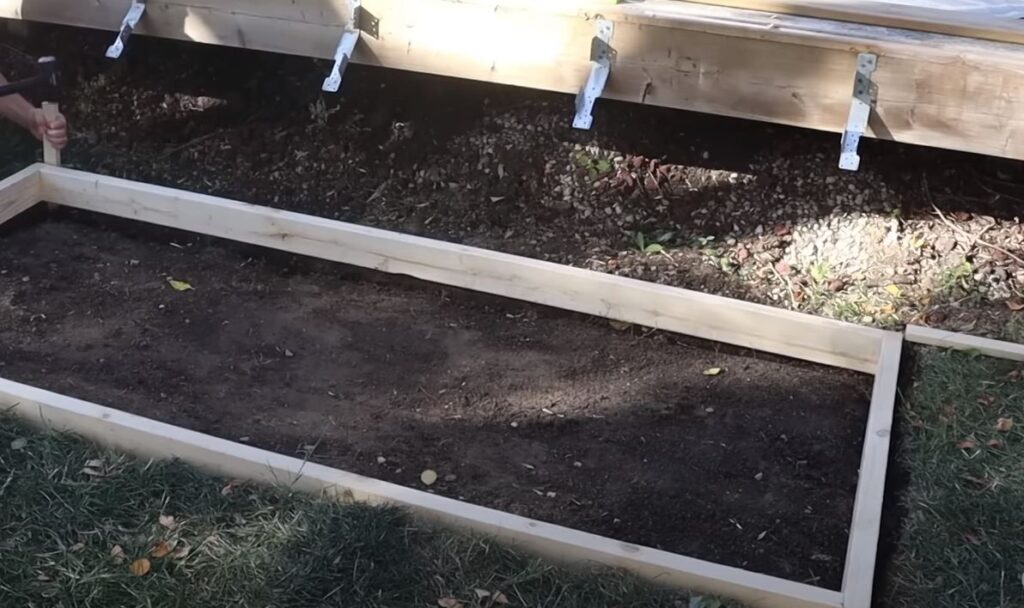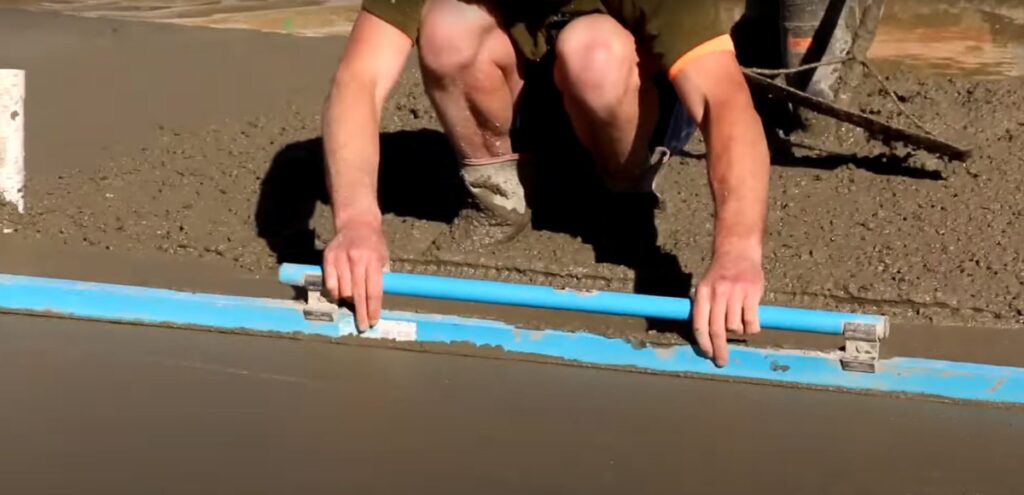A Brief Look at Concrete Driveway Reinforcement Options
When reinforcing residential concrete driveways in Auckland, various options cater to different needs, considering local climate, soil conditions, and load expectations. Given Auckland’s diverse weather and soil types, especially in suburbs like Greenlane and Birkenhead, selecting the right reinforcement is key.
Here’s a breakdown using bullet points for clarity:
- Rebar Reinforcement:
- Composed of steel rods in a grid pattern.
- Ideal for driveways with heavy traffic.
- Improves tensile strength and reduces cracking.
- Suitable for variable weather conditions.
A prime example of where Rebar Reinforcement might be necessary for a driveway is in the industrial areas such as Penrose or Rosebank. These areas often have businesses that handle heavy machinery or frequent large vehicle traffic, like trucks or industrial equipment. The increased load from these vehicles would require a stronger concrete driveway that can withstand heavy traffic and constant use. Rebar reinforcement offers the tensile strength and durability needed in these scenarios, making it an ideal choice for industrial and commercial driveways in these areas. The ability of rebar to resist cracking and handle the stress of heavy loads makes it particularly suitable for such high-demand environments
- Wire Mesh Reinforcement:
- Steel bars or wires in a grid.
- Good for lighter traffic conditions.
- Aids in even load distribution.
- Reduces crack formation due to ground movement.
Wire mesh reinforcement would be particularly suitable for residential driveways in suburbs like Mt. Eden or Remuera in Auckland. These areas typically feature homes with moderate to light vehicle traffic, such as family cars or small delivery vehicles. The wire mesh reinforcement offers sufficient strength and stability for such driveways, ensuring an even distribution of the load and reducing the risk of cracking due to ground movement. Its ease of installation and effectiveness in residential settings make it a practical choice for the driveways of private homes in these suburbs.
- Fiber Mesh Reinforcement:
- Small fibers mixed into the concrete.
- Enhances flexural strength.
- Effective in preventing shrinkage cracks.
- Distributes resistance to temperature fluctuations.
- Does not provide the same level of structural reinforcement as steel.
Fiber mesh reinforcement would be a good fit for driveways in Auckland’s newer residential developments, such as those in Flat Bush or Hobsonville. These areas often feature modern housing with driveways that are not subjected to heavy traffic but still require durability and resistance to cracking. Fiber mesh reinforcement improves the flexural strength of concrete, making it ideal for such environments where the traffic is primarily light vehicles like personal cars. Additionally, its ability to reduce shrinkage and cracking is advantageous in these suburban settings, ensuring a longer lifespan and lower maintenance for the driveways.
- Epoxy-Coated and Galvanized Rebar:
- For areas prone to corrosion.
- Epoxy coatings can be less durable and vulnerable to corrosion if damaged.
Epoxy-coated and galvanized rebar might be particularly necessary in coastal areas of Auckland, such as Devonport or Mission Bay. These locations are prone to corrosive environments due to their proximity to the sea. The salty air and high moisture content can accelerate the corrosion of standard rebar. Epoxy-coated and galvanized rebar offer enhanced protection against corrosion, making them ideal for ensuring the longevity and structural integrity of driveways in these areas. Their use in such environments helps to maintain the strength and appearance of the concrete over time, even under challenging environmental conditions.
- Thickness and Edge Support:
- Standard driveway thickness is about 4 inches, variable based on conditions.
- Thickening driveway edges by 1 to 2 inches offers extra support.
Increased thickness and edge support for driveways would be particularly important in areas of Auckland that experience heavy vehicle traffic or have soil conditions that require additional structural support. An example of such an area could be the commercial or semi-industrial suburbs like Onehunga or Mt. Wellington.
In these areas, concrete driveways might frequently need to support heavy delivery trucks, service vehicles, or machinery. The additional thickness and reinforced edges ensure that the driveway can withstand these high loads without cracking or sinking. Furthermore, the soil in these areas may be less stable or have varying compositions, which necessitates a stronger and more robust driveway design to ensure longevity and safety.
- Concrete Mix and Control Joints:
- Correct mix and control joints crucial for durability.
- Control joints manage cracking, maintaining appearance and integrity.
Concrete mix and control joints are critical aspects for concrete driveways in areas of Auckland that experience frequent temperature changes and varied weather conditions, such as the Waitakere Ranges. This region, known for its natural beauty and diverse weather, would benefit significantly from a carefully chosen concrete mix and strategically placed control joints.
The right concrete mix ensures the driveway has the necessary strength and durability to withstand the region’s sometimes harsh and changeable climate. Control joints are essential in these conditions as they help manage the concrete’s natural expansion and contraction due to temperature fluctuations. By allowing for controlled cracking in designated areas, control joints prevent random, unsightly, or structurally compromising cracks from developing across the driveway.
In summary, for a driveway in the Waitakere Ranges, where the climate can be more challenging, using a suitable concrete mix and incorporating control joints are crucial steps to ensure the driveway’s longevity and aesthetic appeal.
Comprehensive Comparison of Reinforcement Options for Concrete Driveways in Auckland
This table provides a detailed comparison of various reinforcement methods for concrete driveways, considering factors like usage, strength, installation, cost, maintenance, aesthetics, and environmental impact. It’s designed to help homeowners and professionals in Auckland make informed decisions based on their specific driveway requirements.
| Feature / Type of Reinforcement | Wire Mesh Reinforcement | Rebar Reinforcement | Fiber Mesh Reinforcement | Epoxy-Coated and Galvanized Rebar | Thickness and Edge Support | Concrete Mix and Control Joints |
| Primary Use | Light to moderate traffic areas | Heavy load areas, commercial driveways | Residential areas with light vehicle load | Coastal or corrosive environments | Areas with heavy loading or unstable soil | All types of driveways, especially with variable weather |
| Strength and Durability | Good load distribution, prevents cracking | High tensile strength, excellent for heavy loads | Enhances flexural strength, good crack resistance | High corrosion resistance, long-lasting in specific environments | Prevents sinking/cracking, supports heavy loads | Prevents random cracking, manages expansion/contraction |
| Installation | Easier and quicker to install | Labor-intensive, requires precise placement | Mixed directly into the concrete, easy to incorporate | Similar to regular rebar but with corrosion-resistant coating | Requires additional concrete depth and edge reinforcement | Standard concrete laying with specific joint placements |
| Cost | Generally less expensive | More expensive due to material and labor | Comparable to wire mesh in cost | More expensive than standard rebar | Additional cost for increased thickness | Standard cost, control joints are a part of regular installation |
| Maintenance | Low maintenance | Regular inspection needed, especially for rust | Minimal maintenance | Requires inspection for coating damage | Periodic checks for structural integrity | Regular checks for joint integrity and surface condition |
| Aesthetic Impact | Minimal surface impact | Does not affect surface appearance | Does not affect surface appearance | Does not affect surface appearance | Can create a thicker profile driveway | Control joints can be part of the design aesthetic |
| Environmental Considerations | Recyclable material | Recyclable steel, potential rust issues | Some fibers are eco-friendly | Reduced environmental impact due to corrosion resistance | Heavier use of materials | Standard environmental impact of concrete |
This table provides an overview of the various reinforcement options for concrete driveways, highlighting their primary uses, strengths, installation requirements, cost implications, maintenance needs, aesthetic impact, and environmental considerations
In summary, the best reinforcement for an Auckland driveway depends on factors like load, local conditions, and desired longevity. Consulting with professionals, such as those at Professional Concrete Driveways Auckland, ensures a driveway that meets functional and aesthetic needs.
Frequently Asked Questions on Residential Driveway Reinforcement
What factors determine the best type of reinforcement for a residential driveway?
The best reinforcement type depends on factors like the expected vehicle load, local soil and weather conditions, and the driveway’s size and design. In areas with heavy traffic or unstable soil, stronger reinforcement like rebar might be necessary.
Is rebar necessary for all residential driveways?
Not all driveways require rebar. For lighter traffic and stable ground conditions, alternatives like wire mesh or fiber mesh might be sufficient.
How does the local climate in Auckland affect driveway reinforcement choices?
Auckland’s variable climate means that driveways must withstand different weather conditions. Materials like rebar and fiber mesh are effective in managing temperature-induced expansion and contraction, reducing the risk of cracking.
Can the thickness of concrete affect the need for reinforcement?
Yes, the thickness of concrete impacts the need for reinforcement. Thicker driveways, especially in areas with heavier loads, benefit from stronger reinforcement like rebar to prevent cracking and sinking.
What are the advantages of using wire mesh in residential driveways?
Wire mesh offers even load distribution and helps prevent cracking due to ground movement. It’s suitable for residential driveways with moderate traffic.
How does fiber mesh reinforcement benefit a driveway?
Fiber mesh enhances the concrete’s flexural strength, reduces shrinkage and cracking, and is effective in driveways that experience light vehicle loads.
Why might epoxy-coated or galvanized rebar be used in certain Auckland driveways?
In coastal areas or places with high moisture, epoxy-coated or galvanized rebar is used to resist corrosion and prolong the driveway’s life.
What role do control joints play in driveway durability?
Control joints help manage concrete’s natural expansion and contraction, preventing random cracking and maintaining structural integrity.
Is there a difference in longevity between rebar and wire mesh reinforced driveways?
Rebar typically offers greater longevity under heavier loads, while wire mesh is sufficient for lighter traffic conditions.
How does soil type influence the choice of driveway reinforcement?
Soil type affects the stability and support for the driveway. In areas with softer or unstable soil, stronger reinforcement like rebar might be necessary to prevent sinking or cracking.
Can residential driveways be reinforced without steel?
Yes, alternatives like fiber mesh can reinforce driveways without steel, offering sufficient strength for light to moderate traffic conditions.
What are the cost implications of different reinforcement types?
Rebar is generally more expensive than wire mesh or fiber mesh due to its strength and durability, particularly suitable for driveways with heavy usage.
How does reinforcement choice impact the aesthetics of a driveway?
Reinforcement usually does not affect the surface aesthetics of a driveway. However, control joint placement and finishing techniques can influence the final appearance.
Are there environmental considerations in choosing driveway reinforcement?
Yes, materials like epoxy-coated rebar can be more environmentally friendly due to their corrosion resistance, reducing the need for future repairs and resource usage.
How often does driveway reinforcement need maintenance or replacement?
The maintenance needs depend on the reinforcement type and environmental conditions. Regular inspections can help identify any issues early on, but generally, reinforced driveways have a long lifespan with minimal maintenance requirements.
Does the size of the driveway influence the choice of reinforcement?
Yes, the size of the concrete driveway can influence reinforcement choice. Larger driveways with more surface area may require stronger reinforcement like rebar to handle the increased load and potential ground movement.
Can driveway reinforcement impact drainage and water management?
Proper reinforcement can aid in managing drainage by maintaining the structural integrity of the driveway, preventing cracks and uneven surfaces where water can pool.
Is it possible to retrofit an existing driveway with additional reinforcement?
While challenging, it is possible to retrofit additional reinforcement, such as adding a top layer of reinforced concrete. However, this usually depends on the current condition and thickness of the existing driveway.
How do Auckland’s specific building regulations affect driveway reinforcement?
Auckland’s building regulations may dictate certain standards for driveway construction, including reinforcement specifications, to ensure safety and durability. It’s important to consult local guidelines and professionals.
Are there eco-friendly reinforcement options for driveways?
Eco-friendly options, such as recycled steel for rebar or fibers made from recycled materials, are available for driveway reinforcement, aligning with sustainable construction practices.




